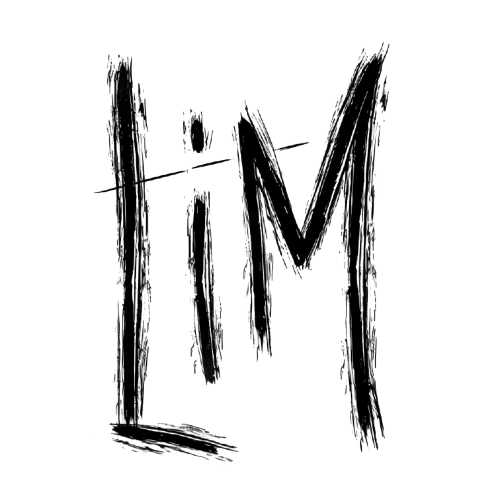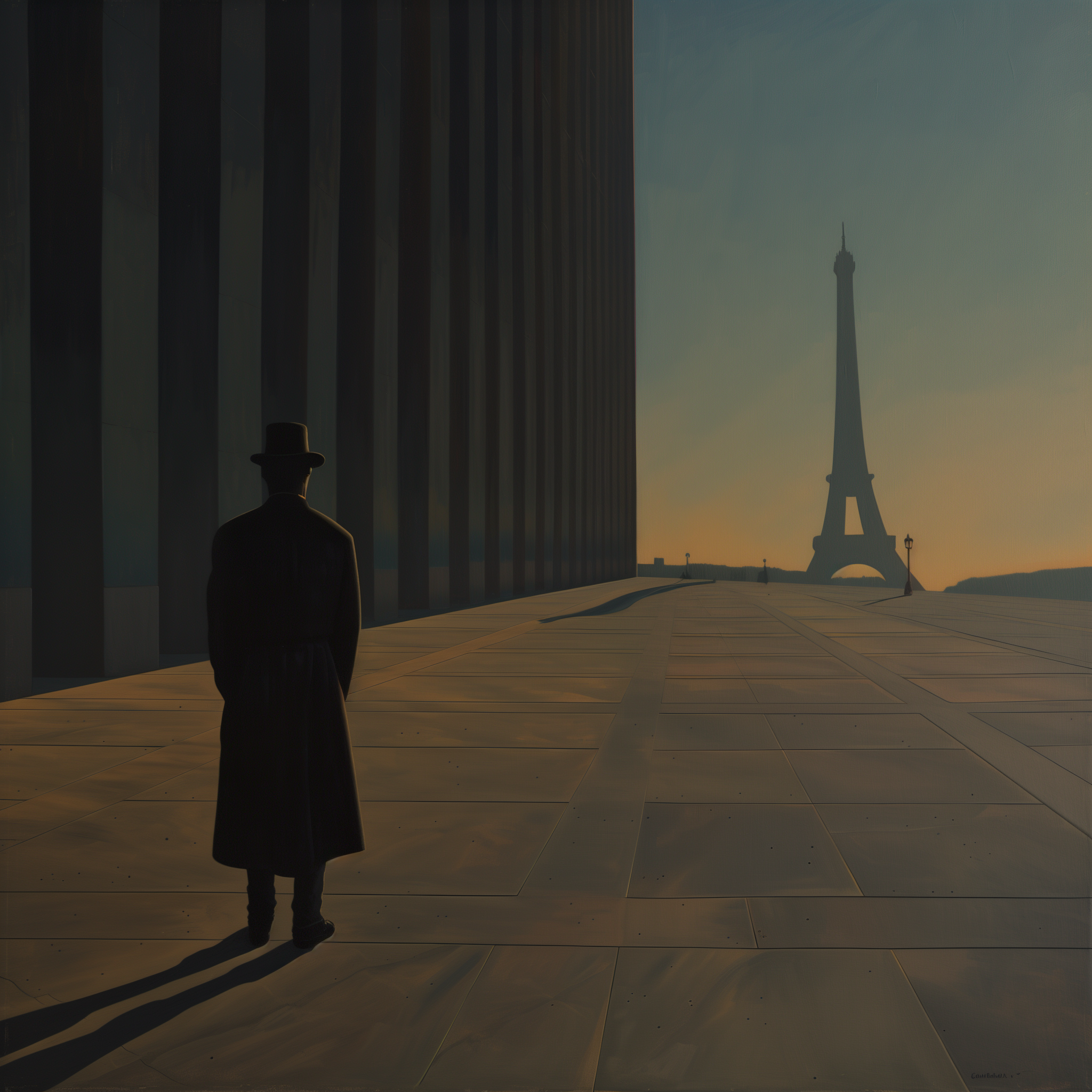
Edge of Paris
Paris is never louder than at the moment it falls silent. I place myself at the edge of a monumental wall, letting the plaza open toward the Eiffel Tower like a held breath. The evening light lengthens forms and thoughts alike. I am drawn to this pause between intimacy and grandeur — a city reduced to line, plane, and horizon. In that restraint, I paint the space where memory meets desire, and where one step forward would change everything.
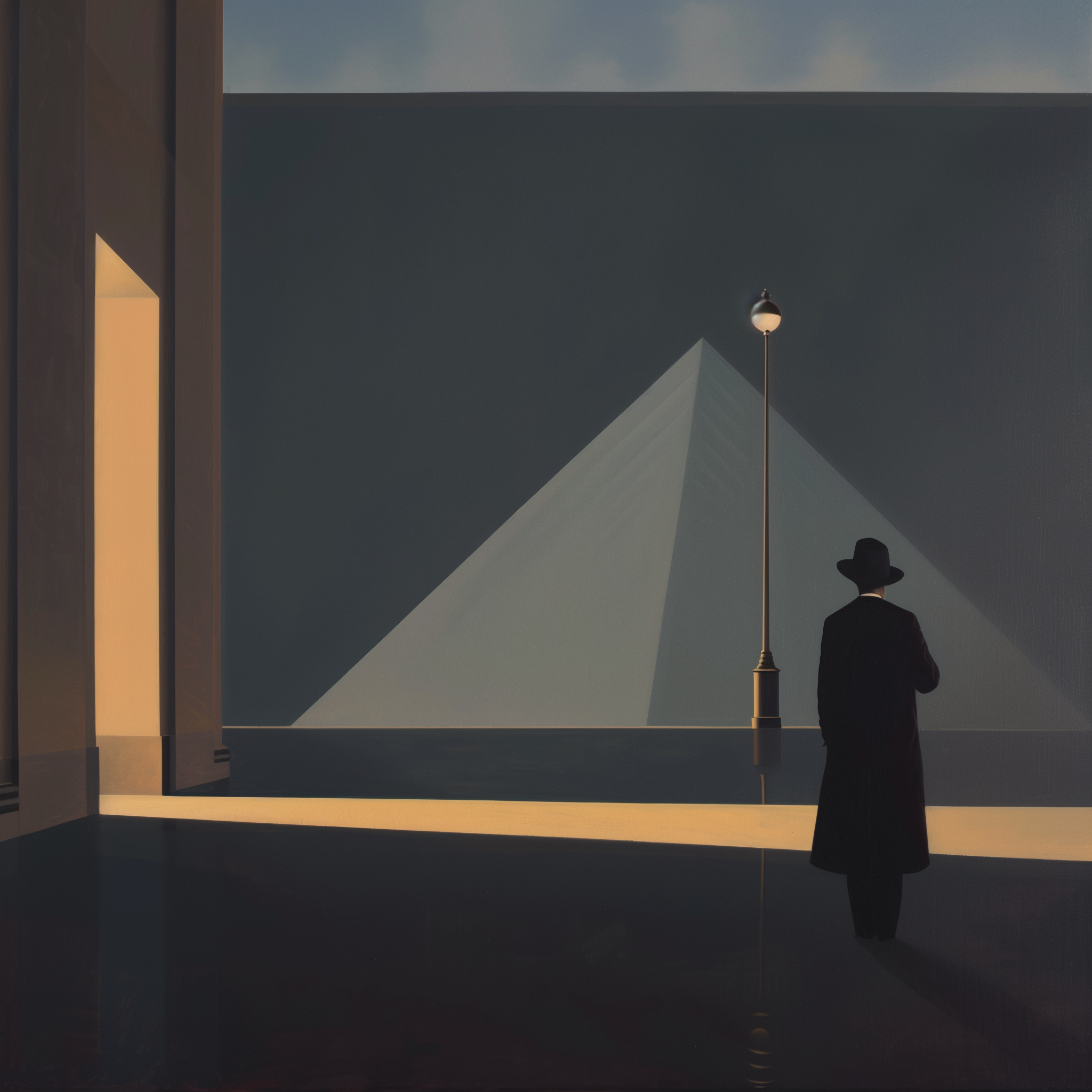
Shadows of the Louvre
At the Louvre I seek not the crowd but the geometry that survives it. A single lamppost, a diagonal of light, a shadow that divides the square — these are my companions. I paint the museum as a quiet problem in composition: how little is needed to reveal depth? Facing the triangle of light, I think of knowledge as a beam crossing darkness. I stand aside, allowing the stillness to speak, and I paint what it says.
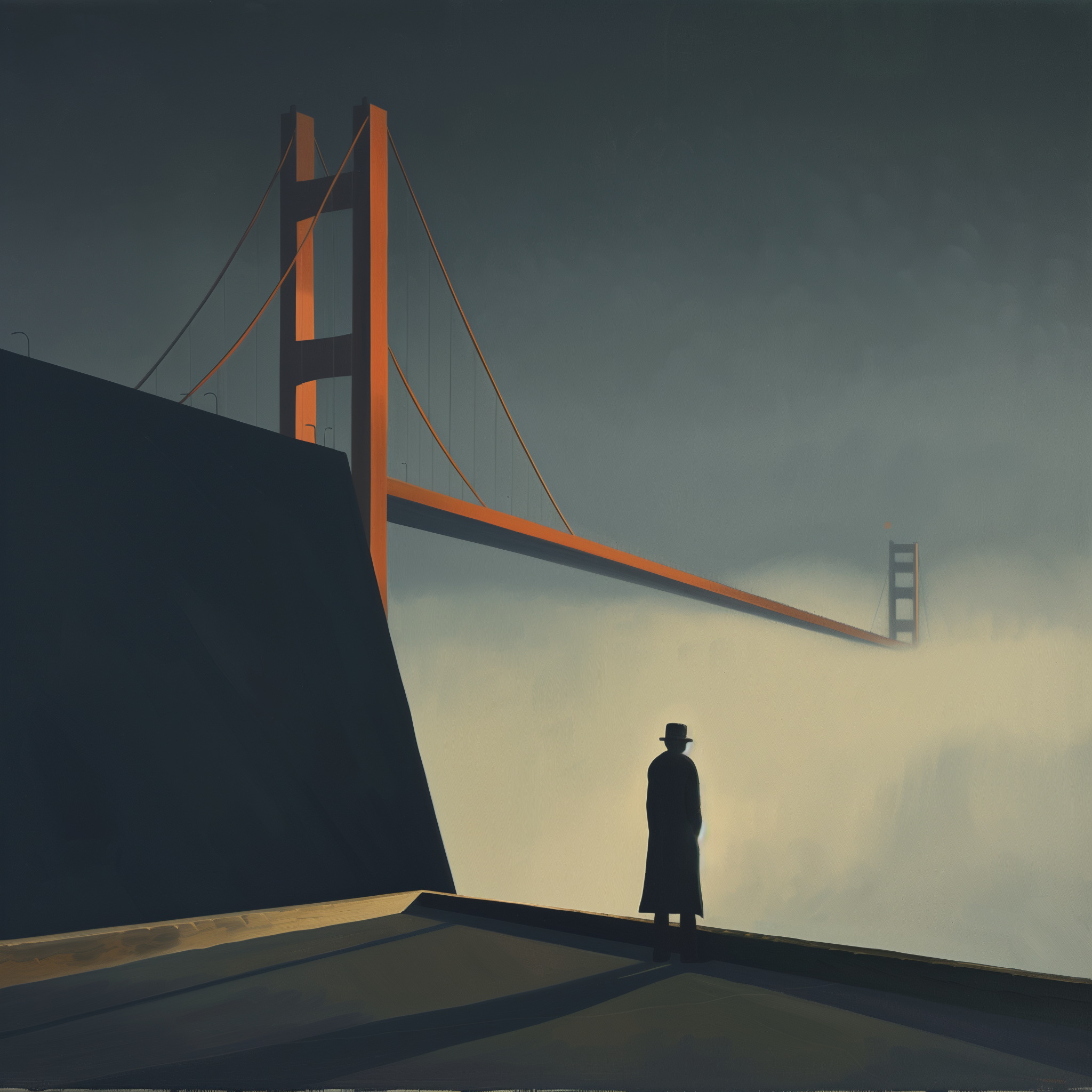
Bridge to the Fog
San Francisco teaches me that certainty can float. The bridge appears and disappears with the tide of fog, a line of will suspended over doubt. I stand at the margin where ground ends and mist begins, painting the contrast between steel and vapor. The color is restrained so the silence can be heard. In this veil I recognize my own questions — how to cross, when to wait, and how a simple span can hold a world together.
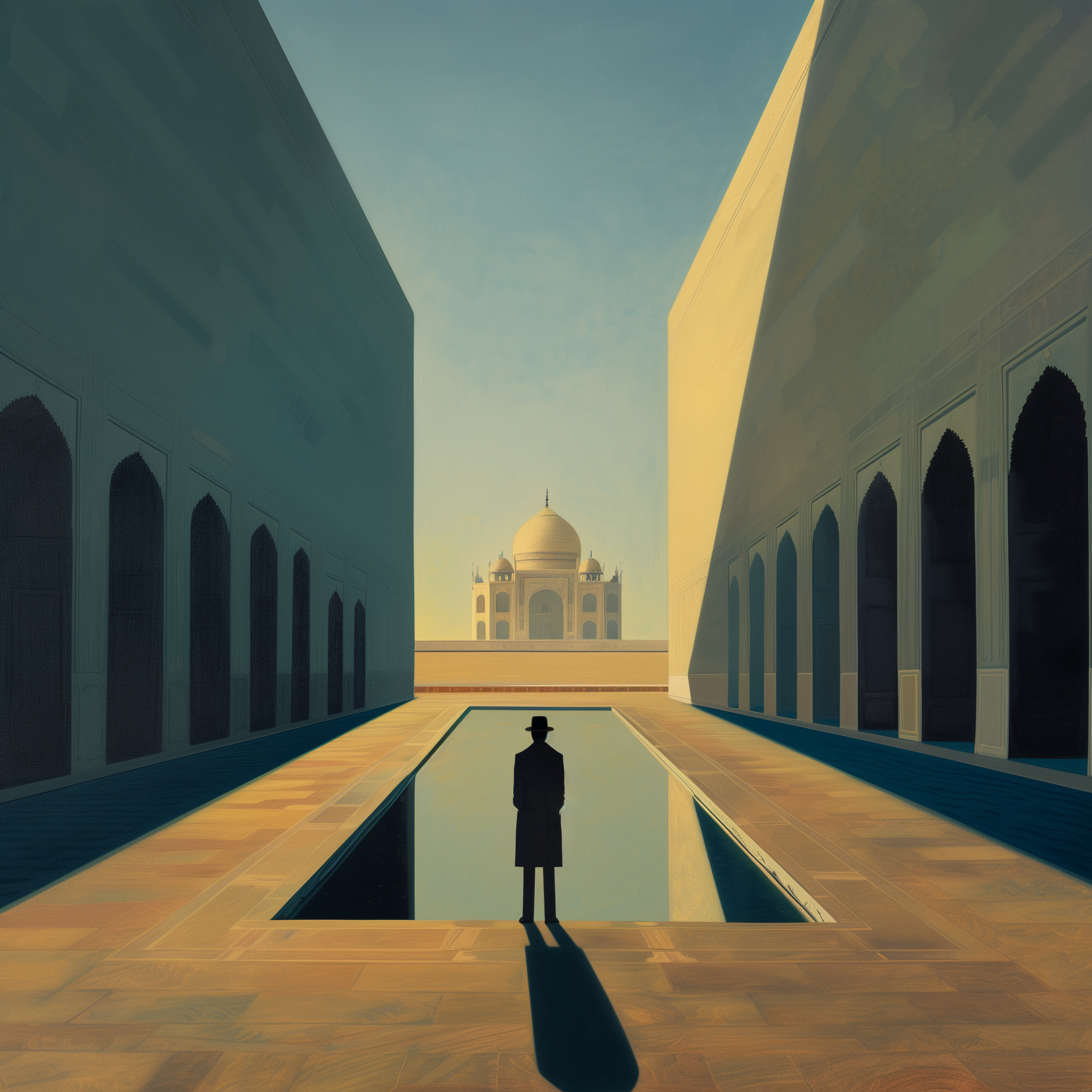
Axis of Devotion
Here I honor symmetry as a form of devotion. The Taj Mahal is not only marble; it is an idea about love made visible. I align my body with the water axis to feel the building breathe through reflection. Light turns the colonnades into metronomes of shadow, and time slows. Painting this, I seek a tenderness without sentimentality — a clarity where grief, beauty, and patience share the same precise line.
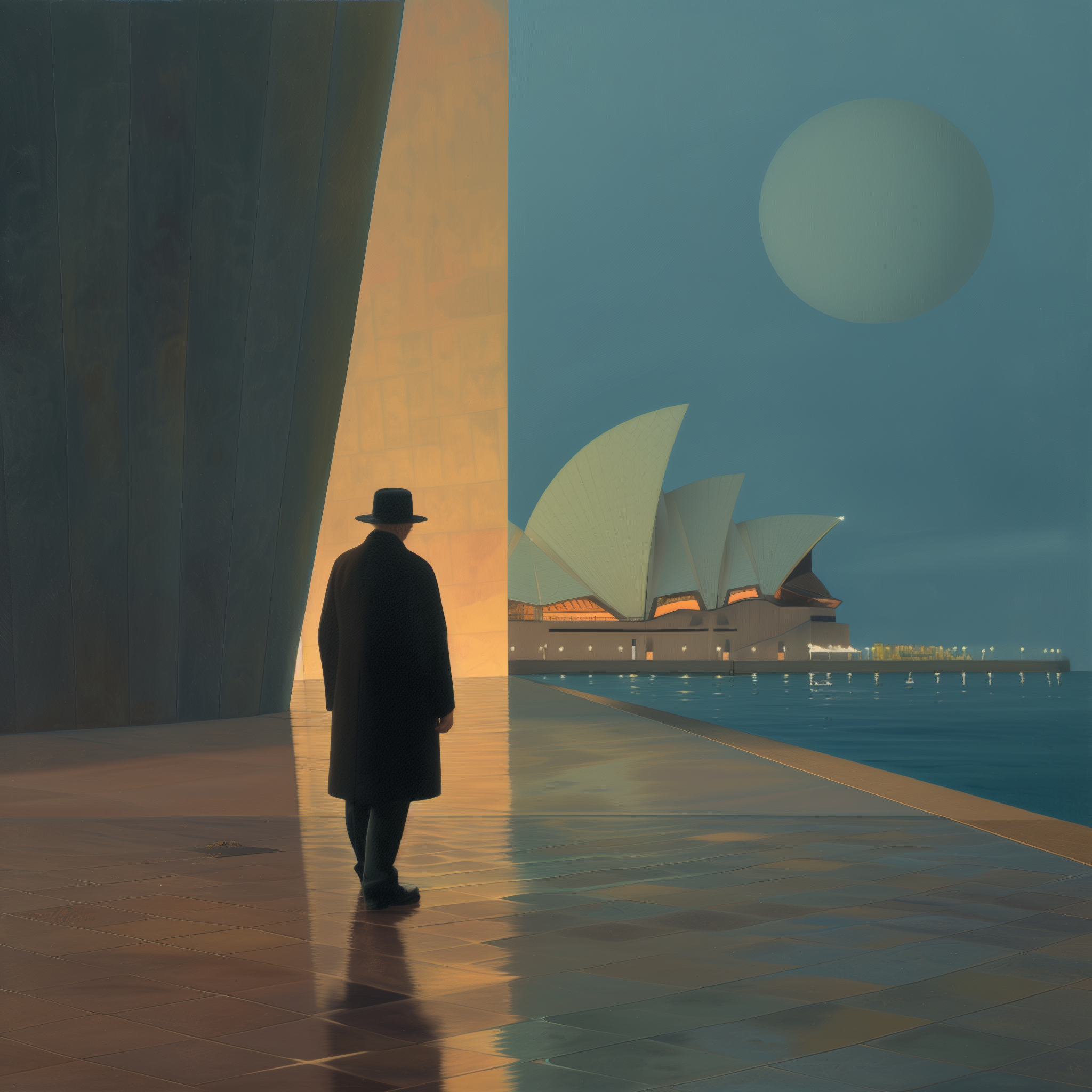
Silent Symphony
In Sydney I paint sound without sound. The Opera House rises like shells catching light, while the quay keeps the memory of rain. I turn my back to the busy side of the harbor and listen to the openness of water and sky. The composition is simple so the interval can be felt — the space between note and echo, presence and afterglow. I stand there quietly, and the painting carries the rest.
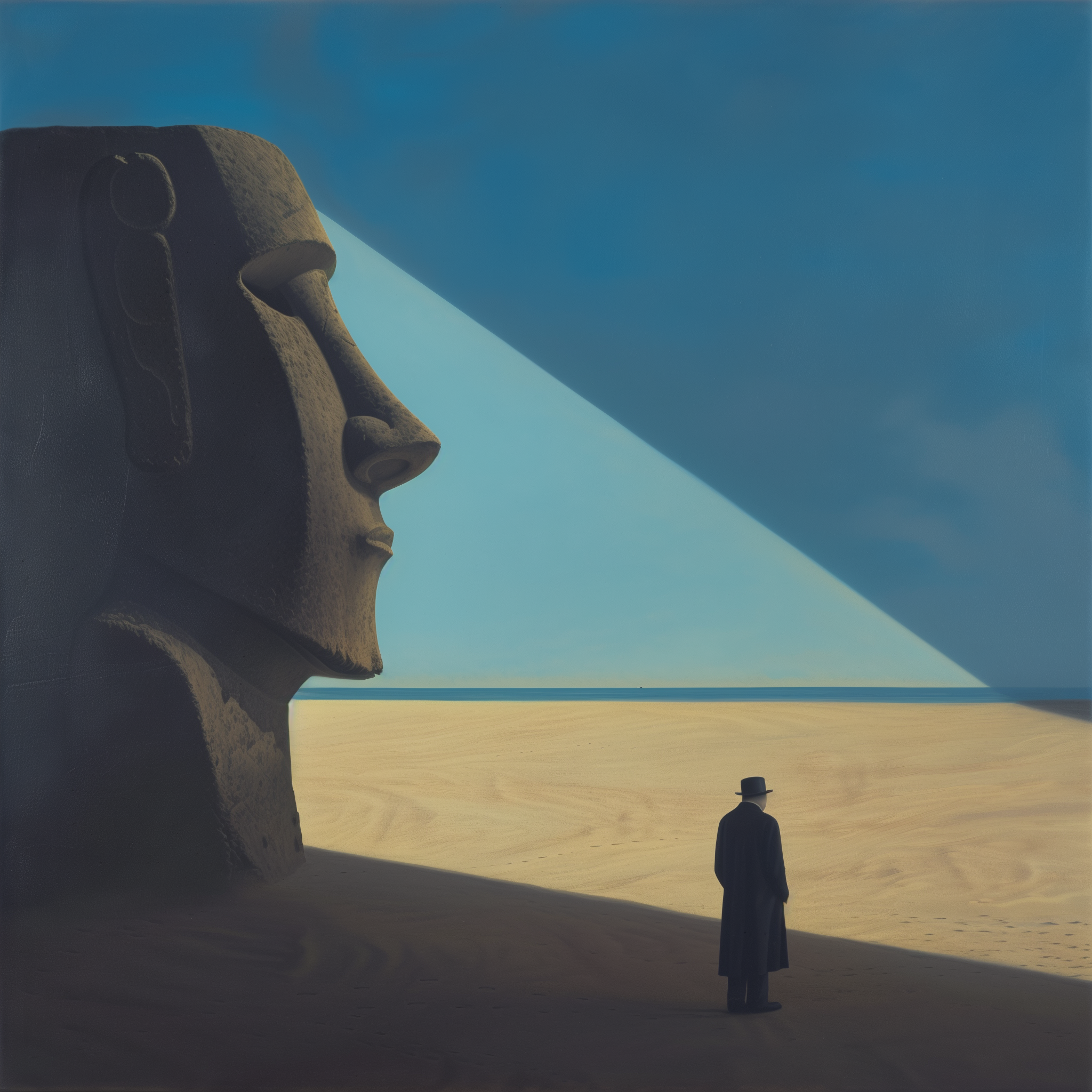
Oblique Witness
I paint the island as a geometry of memory. The Moai keeps its vigil while a wedge of light divides sand from sea. I stand inside the shadow to feel how stone measures time. With almost nothing—sky, sand, profile, threshold—I search for the conversation between monument and man, and for the quiet I inherited from my father.
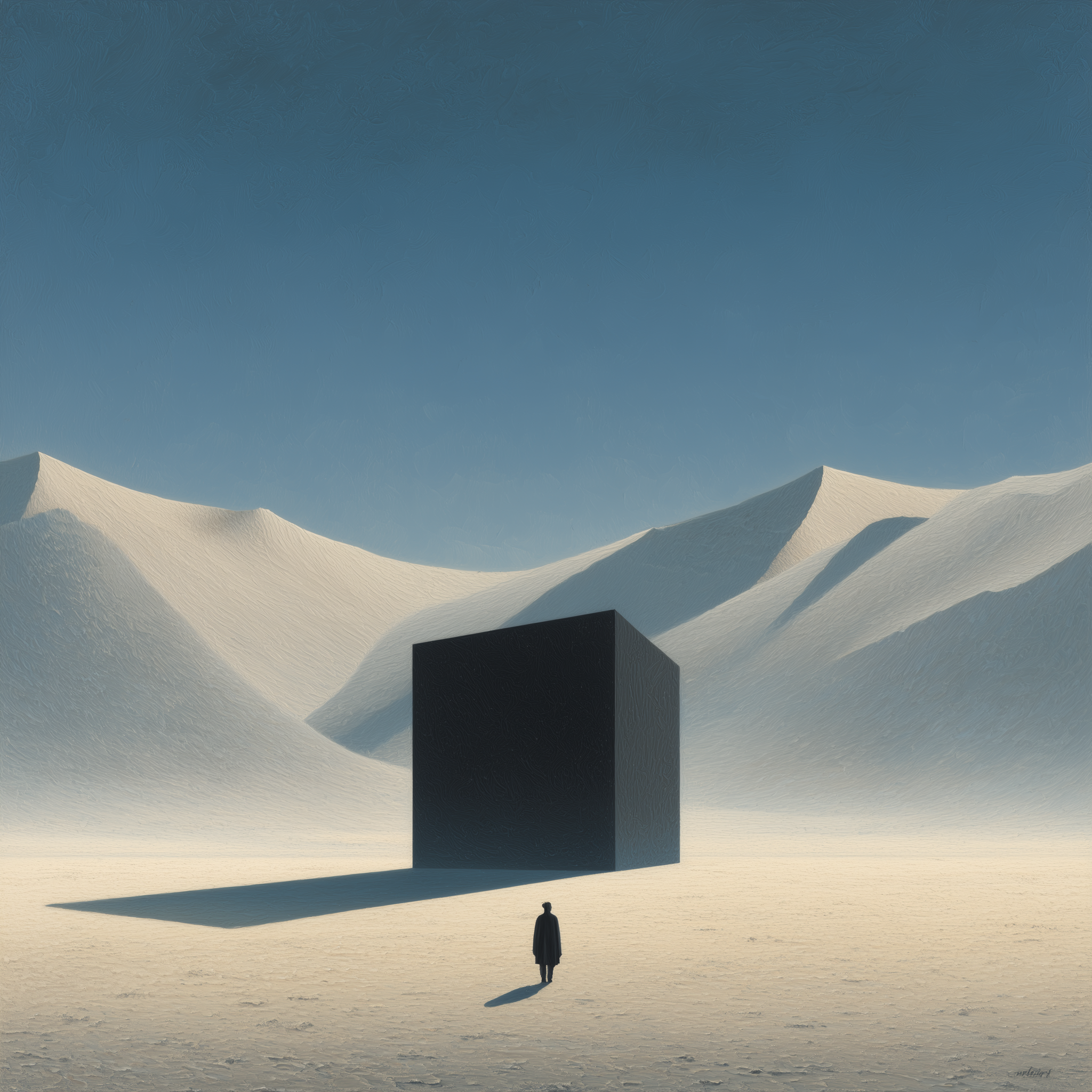
Axiom of Snow
I place a single dark volume in a white world to test what a thought weighs. The cube is not an answer but a premise—an axiom that throws a precise shadow. As I walk toward it, the cold becomes a kind of clarity. I let the silence and the shade do the speaking, and I record the first principle on canvas.
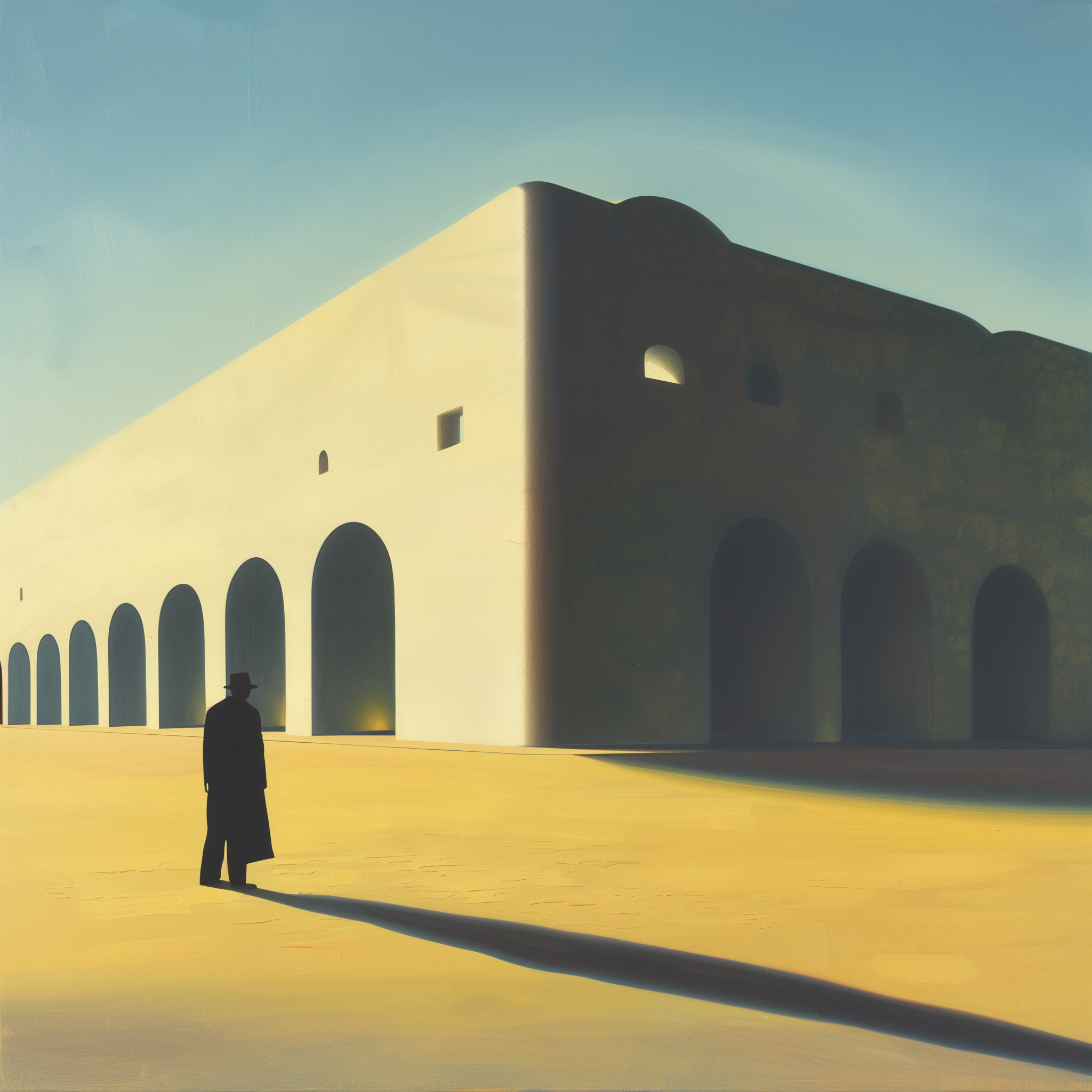
Arcades of Remembrance
I return to Rome for its architecture of endurance. The sun chisels the façade into planes of light and shade while I stand at a measured distance, listening to the emptiness. The long arcade reduces time to geometry; my shadow becomes a ruler laid across the ground. I paint this austerity on purpose — a metaphysical calm where history breathes without noise, and where I can question scale, solitude, and what remains of us when the crowd is gone.
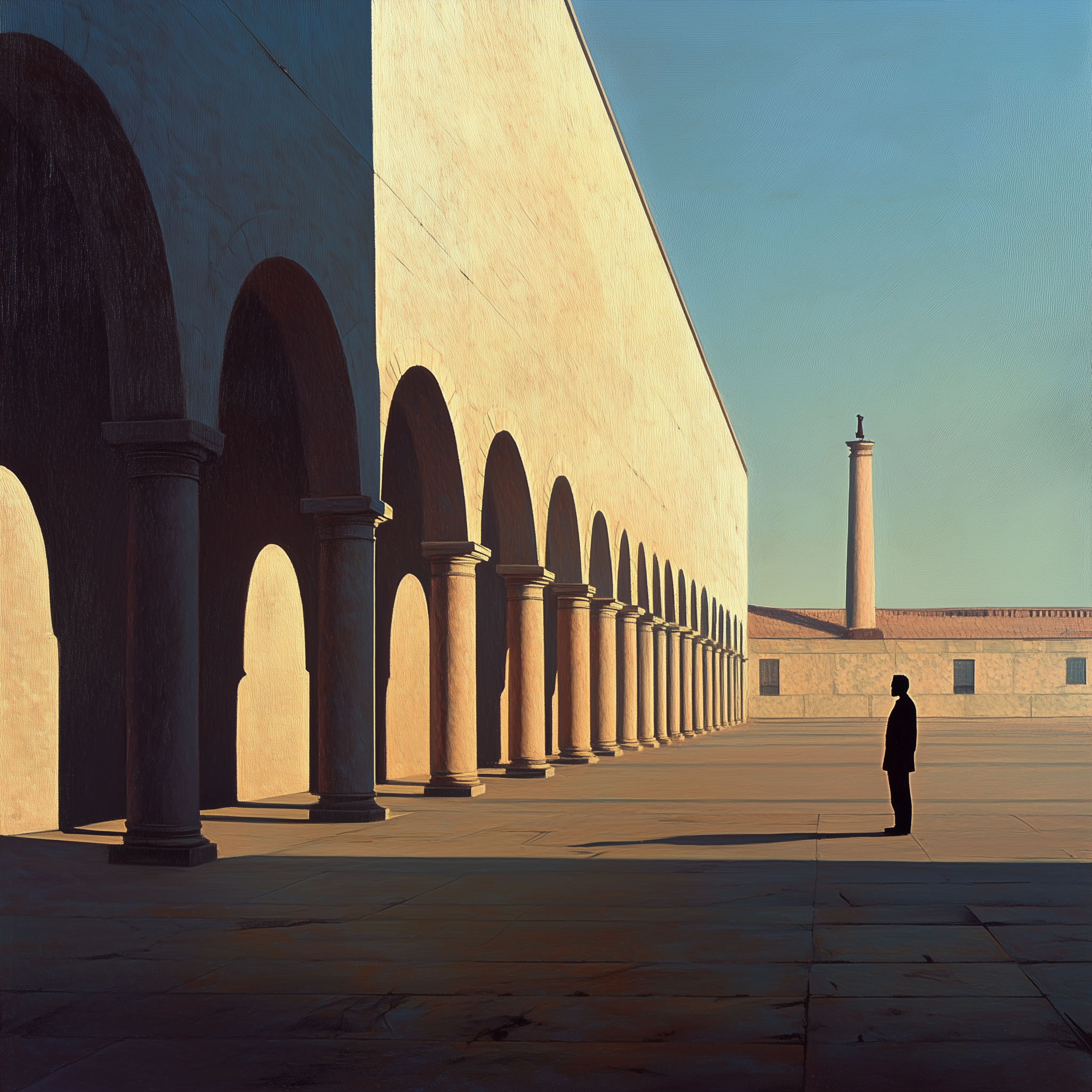
Meridian Arcade
At midday the city becomes a metronome. Columns, arches, and the ground between them count the seconds in light and shade. I stand still to hear the rhythm. I paint the stone as if it were time itself—measured, patient, and honest—so the space between steps can finally be seen.
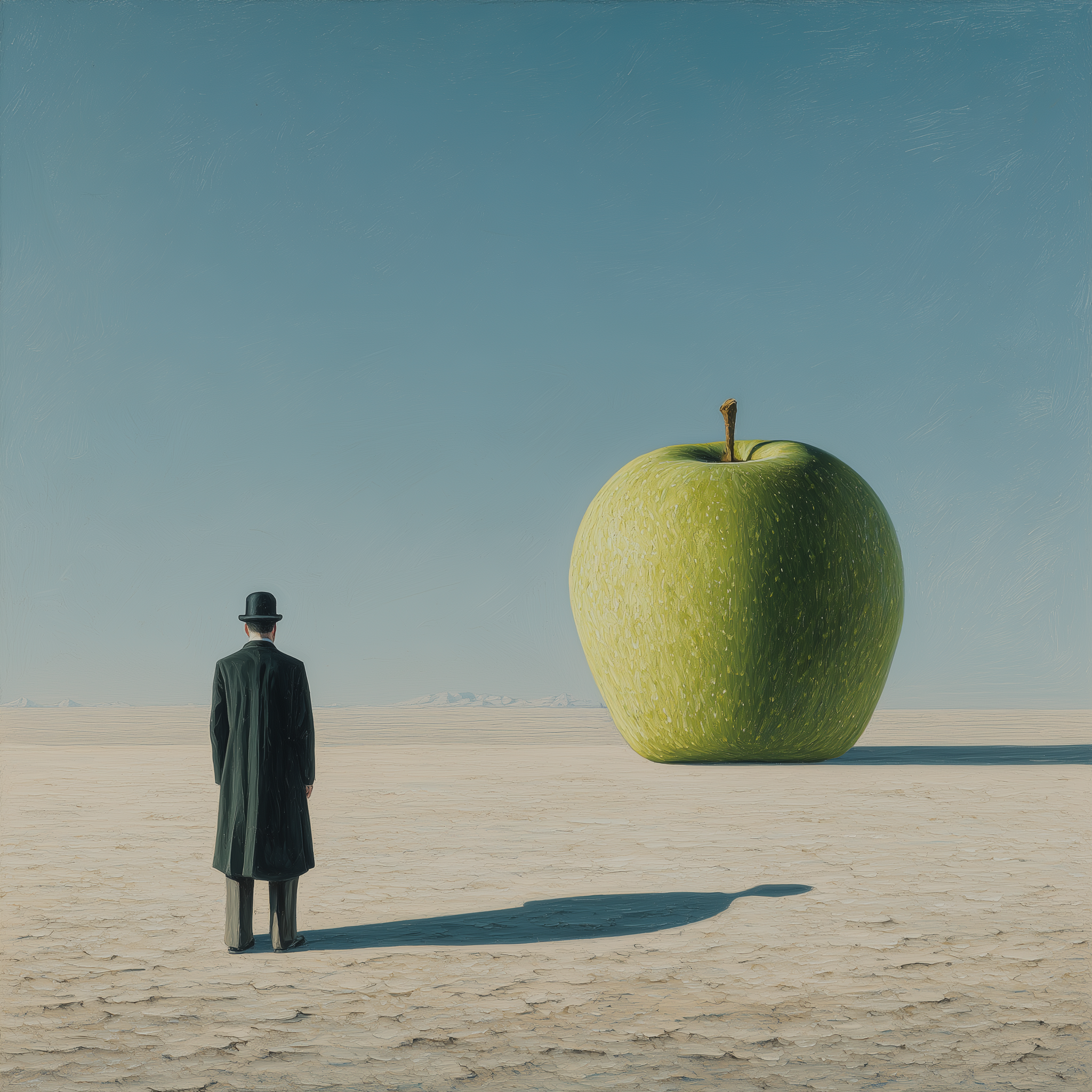
The Necessary Apple
I remove everything that is not the question: sky, ground, shadow—and an apple large enough to become an idea. It is a nod to Magritte and to the rule that meaning grows with scale. I face it without irony. In the stillness, I ask what hunger really is: a vision, a memory, or simply the will to cross the distance between us.
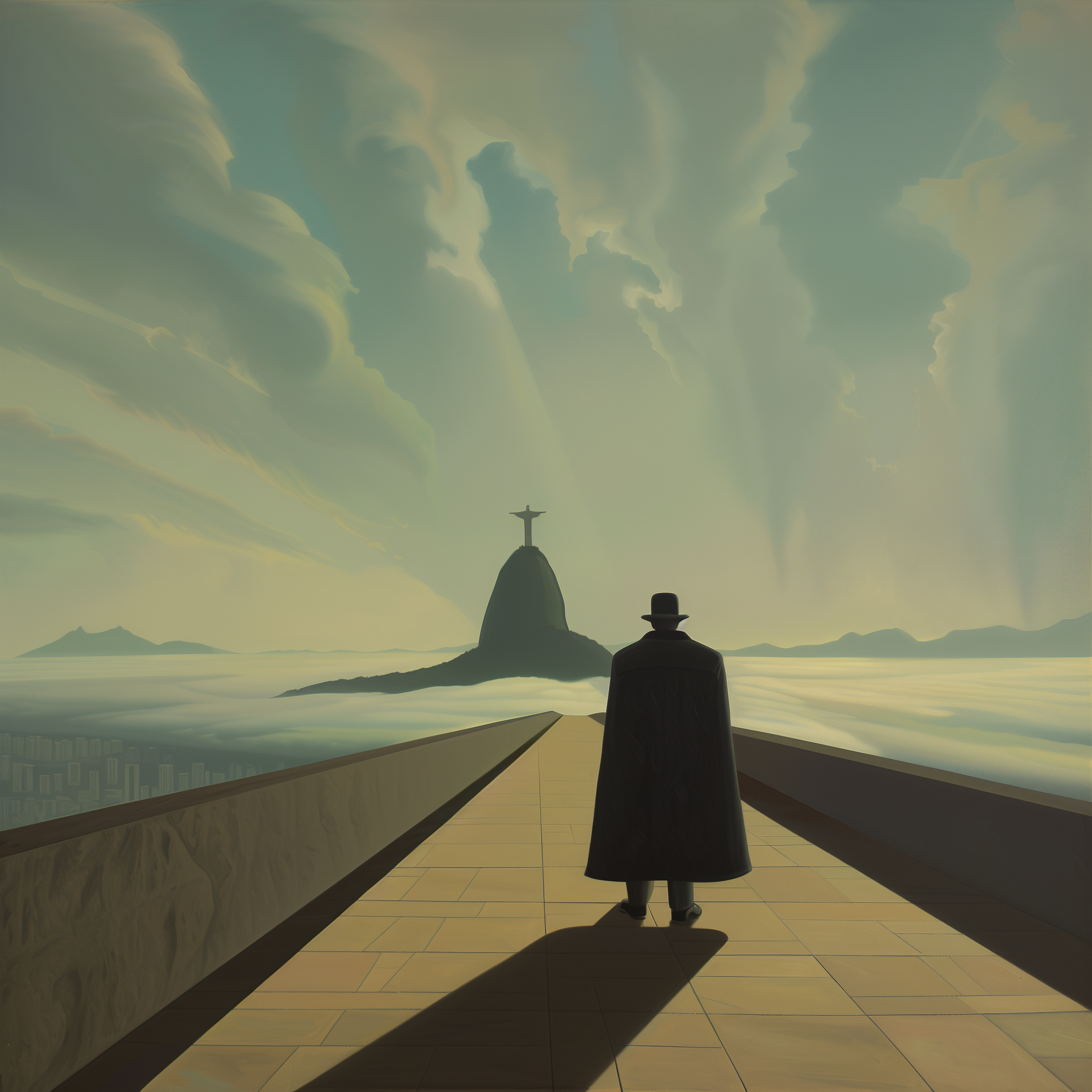
Beyond the Clouds
I painted this work as a meditation on solitude and distance. A solitary figure stands on a high promenade, while the city disappears beneath drifting clouds. In the distance, Christ the Redeemer emerges from the mist, arms stretched in silence. The geometry is stripped to its essence, minimal, almost brutalist, to emphasize the long shadow cast by dusk. My inspiration came from the metaphysical tension of de Chirico and the cinematic stillness of Hopper, but the emotion is my own: a dialogue between faith, absence, and the threshold of human presence.
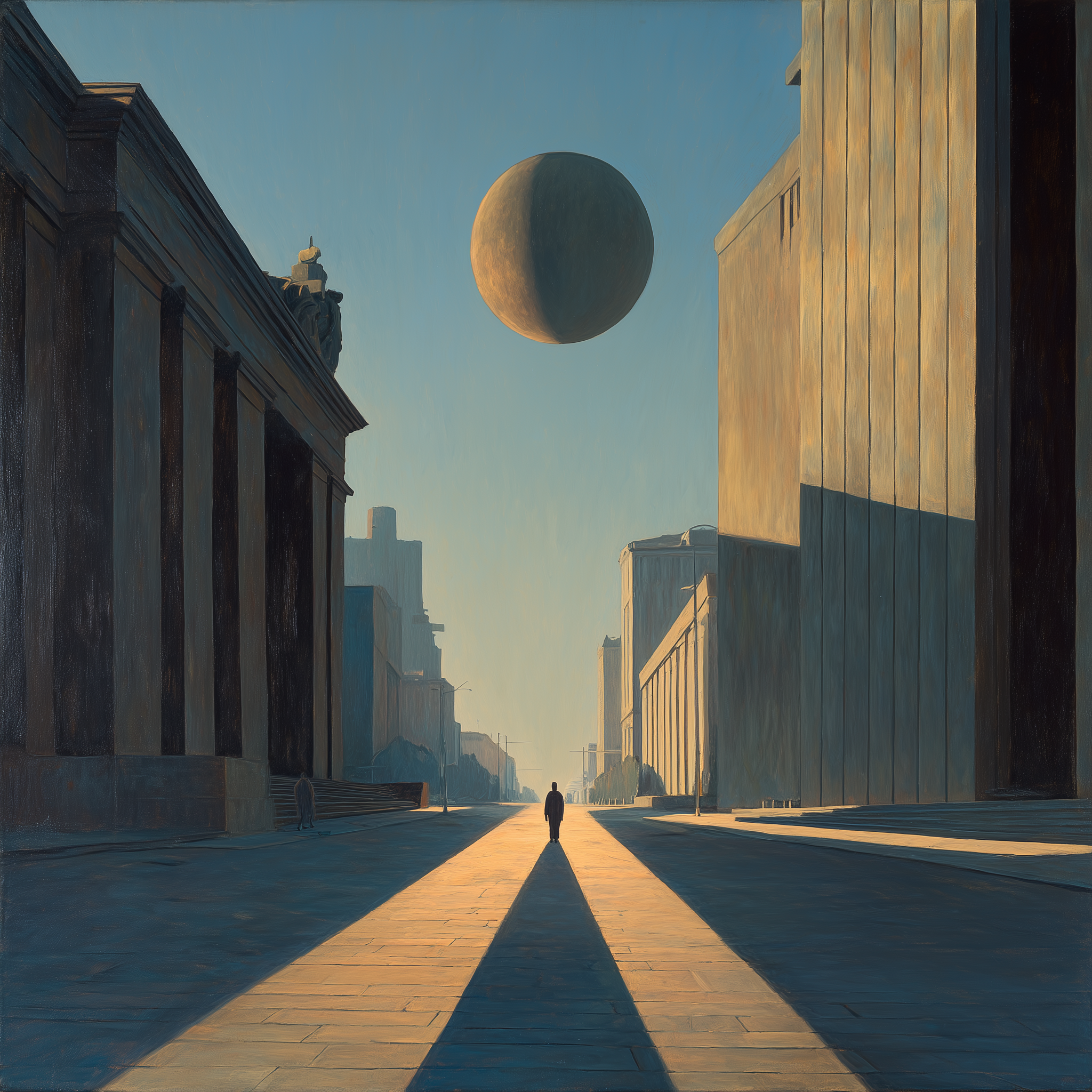
Suspended moon
I empty the street to let the sky speak indoors. The sphere floats where logic expects weight, and the city accepts the contradiction. I walk the central axis like a clock hand, dividing the morning into planes of gold and blue. What holds the world up is not mass but attention—that is what I paint.
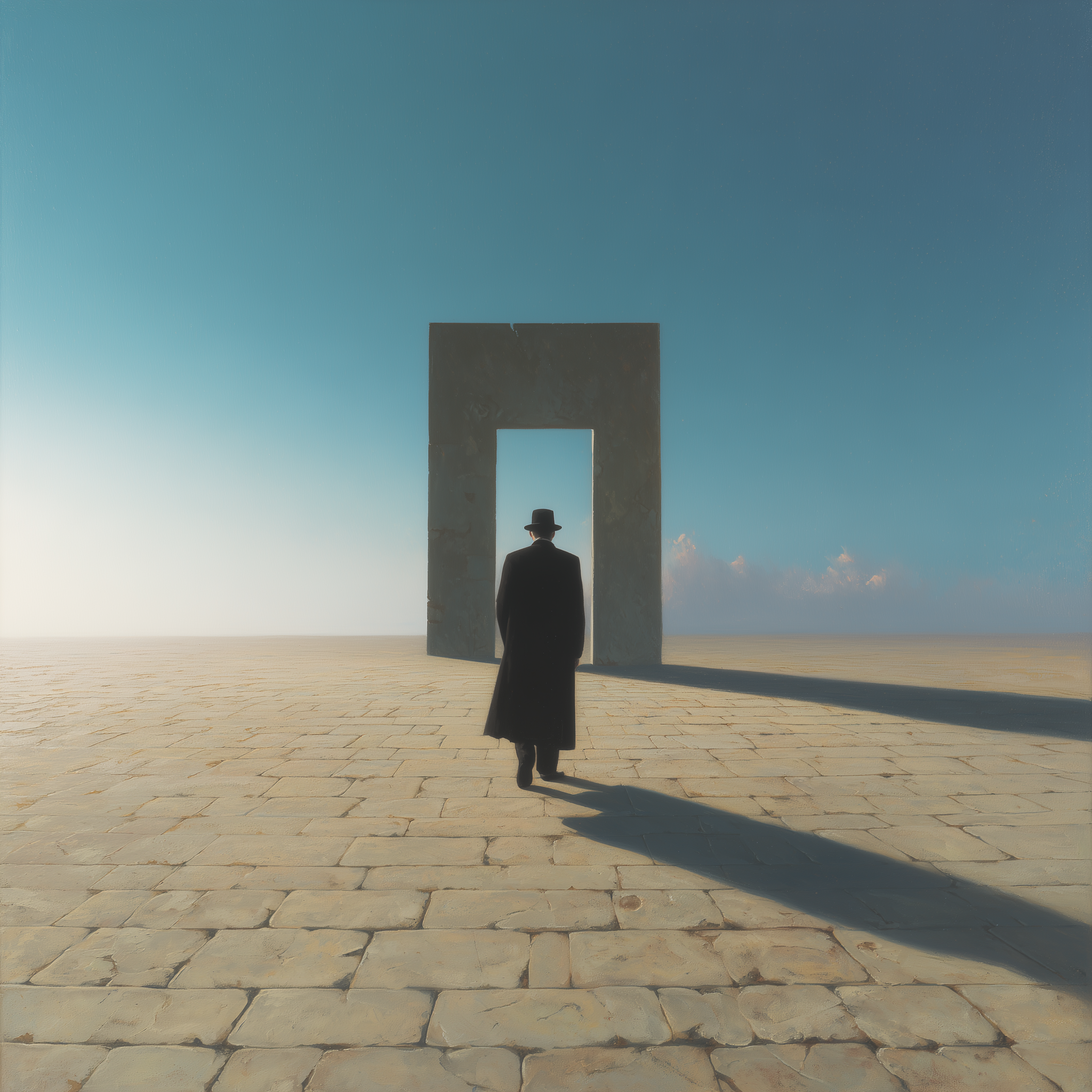
Before the Door
Kafka’s parable follows me: a door that is always open yet never crossed. I build a bare landscape so the question has no distraction. The gate stands without walls, like an argument without conclusion. As I walk toward it, I paint the slowness of time, the weight of choice, the humility of not knowing what waits beyond. This is my ritual: to approach, to hesitate, to recognize that the threshold itself is the place where meaning appears.
